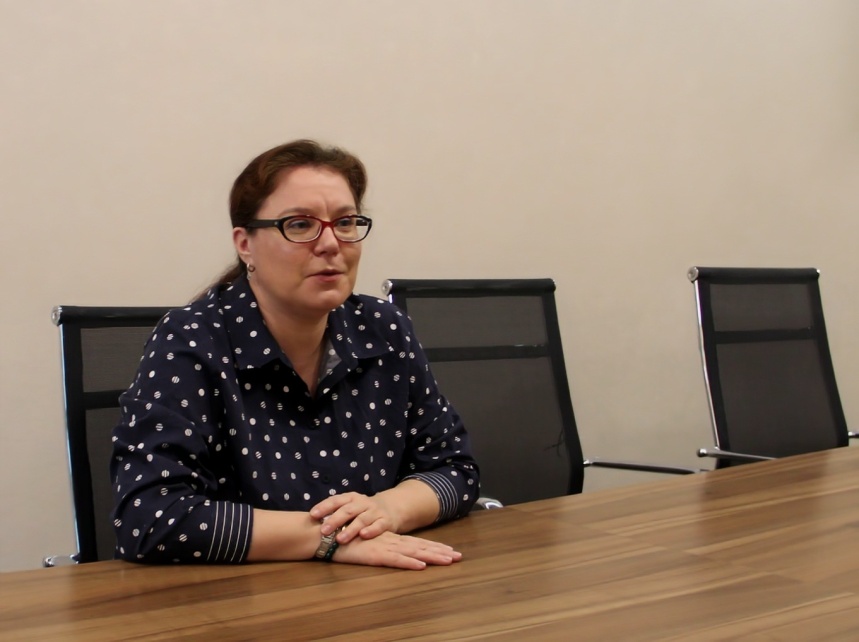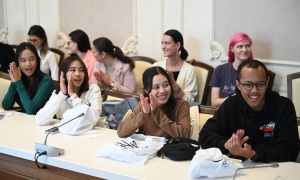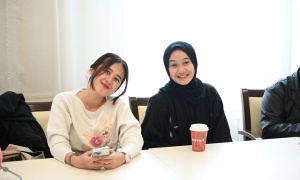
IEM Associate Professor Lilia Yuhvatulina: Students from Asian countries come here to study because our cultures are close
TSU continues to run an international program IISMA for students from Indonesia. The Institute of Distant Education is responsible for the program. The IEM Associate Professor Lilia Yuhvatulina teaches management subjects on the program, she told us about her experience in working with foreign students and preparation to the meeting with the Indonesian students.
The subjects taught by Lidia Ravilievna are divided into two fields: the strategy of tourist organizations management and organizational structures. The course is focused on the management in tourist field.
Russian culture has its place between East and West, we can comprehend both Western individualism and Eastern collectivism. We are cultural mediators due to our understanding of both sets of values. This is exactly why students from Asia come to us, we are culturally close.
Indonesians are from Asian-Muslim country but I am going to teach them the American model of management because it is a universal basic model. It is considered comparatively free of cultural stereotypes and not as closely connected with local mentality as Japanese one for example. So, when the Japanese model is implemented in other countries sometimes it does not work as expected. The American model is more flexible and pragmatic because it was shaped when there was not a single culture in the USA due to massive migration from different countries.
However, it is very important to consider cultural characteristics in order to avoid contradictions and unnecessary questions. I am going to talk about pretty strict concepts, for example organizational structure algorithms. These algorithms are roughly the same in all countries but corporate culture will have its influence to a certain extent.
Cross-cultural communication is quite a difficult topic. For example, countries from South Asia are related to collective cultures when American culture is an extreme example of individualism. American model is pragmatic: nothing personal just business. On the contrary we value personal relations, but sometimes we have to prioritize the collective interests like the Japanese.
By the way we used to have a developed scientific management school which was there before the American one. The Russian model was built on the principle of “bedside approach”. At first theorists discover a topical matter, draw up a concept and relay it to practicians. In the US it was the other way around, all the management classics there are practicians. They put practical experience first. Even their management textbooks look like biographies for example Henry Ford’s.
Unfortunately, after the revolution all the management theories in our country remained ink on paper so Russian approach to management was sort of “underdeveloped”. When the Advanced Industrial Engineering Theory was created in Soviet Union it brought to life wonderful things, possibly more effective than Americans had at that time. But in 1937 we lost the leading experts in the field due to the infamous events.
Teaching in English is quite a challenge, of course. I don’t have a formal language education but I do have the experience in working with foreign students which helps to adapt and understand different accents. Often professors are afraid of participating in international programs being ashamed of their non-perfect English. I was afraid too at the beginning but one foreign professor told me that it was normal to have an accent. Students understand that I am not a native speaker and they don’t have any problems with my English.
The other extreme is when professors think that just knowing the professional vocabulary is enough. But this approach won’t work for lectures, because there is always a live conversation. The lecture must be clear and natural. Any piece of public communication has its difficulties. The professor has to speak English fluently enough to give the materiel but I think it’s pointless to worry that your English is not perfect.
If we speak about the value of participation in such programs personally for me, first of all it is an opportunity for development. When you have been teaching for years it can become a routine, and such programs give you a chance to try something new. The working with Indonesian students is very interesting to me because my first degree is connected with the field of tourism and I understand what problems students might face. It is also an opportunity to improve my English and meet people of different cultures.
For the university it is also a great opportunity to expand into new educational markets especially considering the interest of Asian countries in cooperation with Russia. They value our expertise and there are equal conditions for experience sharing.



